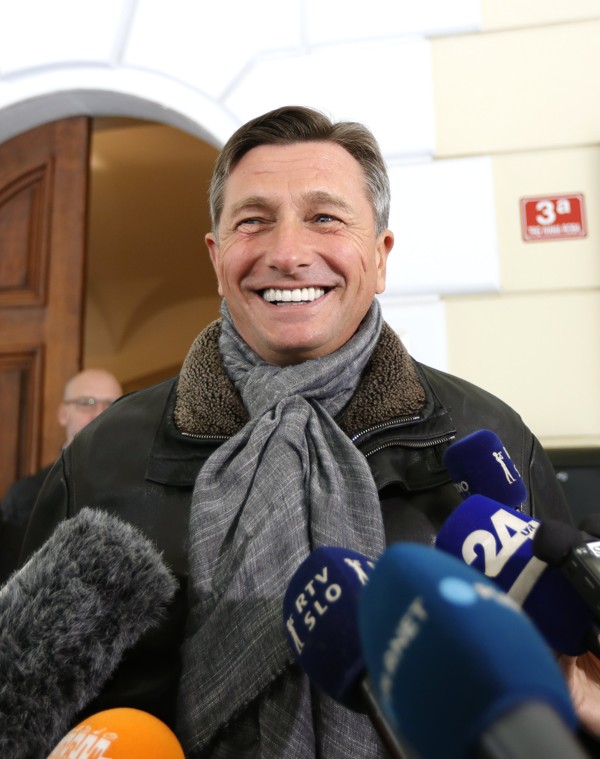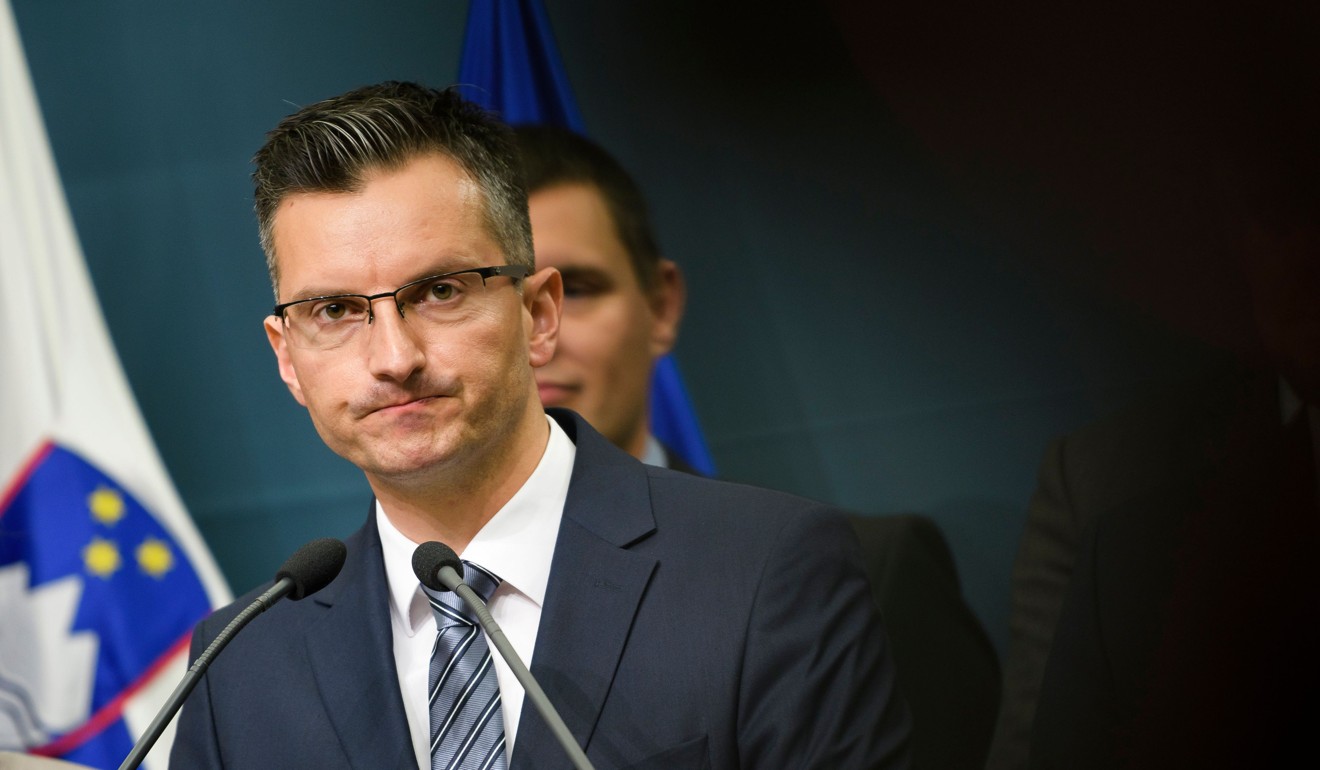
Anti-migrant party wins most seats in Slovenia election, but will struggle to forge a majority
Only one other party has agreed to align with Janez Jansa’s party, leaving it well short of a parliamentary majority
Slovenia’s president said on Monday he will offer a mandate to form the government to a right-wing opposition leader whose party won most votes at weekend parliamentary elections in the European Union nation.
Borut Pahor said former prime minister Janez Jansa should be given a chance to gather a parliamentary majority after his anti-immigrant Slovenian Democratic Party won some 25 per cent of the vote on Sunday.
Most of the other parties that made it into the 90-member parliament have ruled out a coalition with Jansa because of his extremist position. They are more likely to form a centrist coalition.

“I am not obliged to award the mandate to the relative winner of the election, but I will do so because I strongly believe in democracy,” Pahor told the Delo newspaper.
During the campaign, Jansa made common cause with fellow right-wing firebrand Hungarian Prime Minister Viktor Orban and effectively evoked memories of more than 500,000 migrants who crossed Slovenia in late 2015 and early 2016 – although all except a handful of them continued on to northern Europe.
In a televised statement on Sunday evening, delivered with little triumphalism, 59-year-old Jansa said his party’s “door for talks and coalitions is open” to all other parties.
“We are ready to start serious talks based on the programme we have been working hard on,” he said.
He re-iterated his anti-migrant position saying migration was “the most serious challenge according to most Europeans”.
Observers in Slovenia are predicting long and tough post-election talks because a total of nine parties have entered parliament, including the far-right National Party.

The anti-establishment List of Marjan Sarec trailed in second place with just over 12 per cent, preliminary returns showed. The Social Democrats, the Modern Centre Party of the outgoing prime minister, Miro Cerar, and the Left all received around 9 per cent.
The only party which has so far said it would work with Jansa, the centre-right Nova Slovenija, won just 7.1 per cent and seven seats, leaving the two parties short of the 46 needed for a majority.
Jansa is an ally of Hungary’s anti-immigration prime minister, Viktor Orban. His election prowess with Slovenia’s 1.7 million voters mirrors the growth of right-wing populism in central and eastern Europe following a large influx of migrants from the Middle East and Africa.
Additional reporting by Agence France-Presse

.png?itok=arIb17P0)